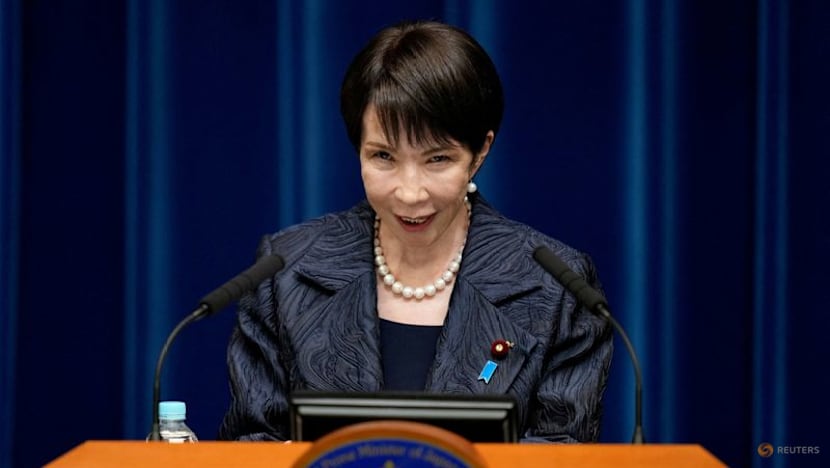Japan prime minister 'strongly hopes' BOJ achieves wage-driven inflation

FILE PHOTO: Japan's new Prime Minister Sanae Takaichi speaks during a press conference at the prime minister's office, in Tokyo, Japan, October 21, 2025. Eugene Hoshiko/Pool via REUTERS/File Photo
TOKYO :Japanese Prime Minister Sanae Takaichi said she "strongly hopes" the central bank achieves inflation driven by wages rather than primarily through rising food costs, signaling her administration's preference for interest rates to stay low.
Speaking in parliament on Wednesday, Takaichi said Japan still faced the risk of returning to deflation, which would prompt households to hold off spending, hurt corporate profits and discourage firms from raising wages.
She also voiced displeasure over recent inflation because it was driven mostly by rising food costs and potentially hurting the economy.
"I'd like to see Japan experience moderate inflation accompanied by wage increases. The type of inflation we're seeing now is not good," Takaichi said.
The government plans to compile a package of measures to cushion the blow from rising living costs and lift investment in growth areas, which in turn will boost corporate profits and brighten consumer sentiment, she said.
"We will create a strong economy. This is a matter that affects monetary policy in a big way, so we hope to coordinate closely with the Bank of Japan," Takaichi said.
"I strongly hope the BOJ conducts policy appropriately so it sustainably and stably achieves its 2 per cent inflation target not through cost-push factors, but by wage gains," she said.
The remarks by Takaichi, known as an advocate of expansionary fiscal and monetary policy, reinforce the challenge facing the BOJ. Even before Wednesday's comments, the Takaichi administration's preference for low rates and fiscal largesse had raised complications for the BOJ's decision on how soon to resume interest rate hikes.
While the BOJ kept interest rates steady at 0.5 per cent last month, governor Kazuo Ueda has signaled the central bank's readiness to hike rates as soon as December if it is sufficiently convinced that companies will keep hiking pay next year.
A delay in the next rate hike, which most market players expect to happen in December or January next year, could trigger renewed yen declines that push up import costs and broader inflation, analysts say.
Finance Minister Satsuki Katayama acknowledged that the negative aspects of the weak yen have become more pronounced than the positives factors, adding the currency's weakness was among factors pushing up raw material costs.
"Recently, we have been seeing one-sided and rapid movements in the foreign exchange market," Katayama told the same parliament session on Wednesday, warning that authorities were monitoring developments with a "strong sense of vigilance."
Katayama's remarks briefly pushed down the dollar to around 154.55 yen from 154.75.
While a weak yen gives exports a boost, it has become a political headache for policymakers as it pushes up the cost of importing fuel, food and raw materials.
Core consumer inflation hit 2.9 per cent in September, staying above the BOJ's 2 per cent target on stubbornly high food prices and keeping pressure on the bank to push up still-low borrowing costs.
Pessimists in the BOJ, however, fret about the fragile state of Japan's economy. A Reuters poll showed analysts expect Japan's economy to have shrunk an annualised 2.5 per cent in the third quarter due partly to the hit from higher U.S. tariffs.













